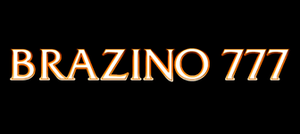Where can I play Poker for Free?
The vast majority of online poker rooms offer practice play tables where you can play against other players in a live game for free here i collecting best apps and sites for free poker. Freeroll tournaments are very common too, which enable players to register and compete in tournaments for cash and prizes without the need to pay an entry fee.
What is the Poker Rake?
A poker rake is a fee charged by the game operator. This can be either a small commission payment charged to the winner of every winning pot or a predefined amount included in the entry fee of a poker tournament.
What is Meant by "No Limit" in Poker?
The term no Limit, As in "No Limit Texas Hold'em." for example, means there is no limit to how much a player can bet on a hand, and is at liberty to wager their entire chip stack in an all-in bet.
Which online Poker Website has the Most Players?
At the time of answering the question, the poker sites with the most players are 888 Poker, PokerStars, and PartyPoker worldwide in terms of site traffic in 2018.
Is it Possible for Players to Collude Playing Online Poker Games?
It is not impossible for two or more player to collude to gain an advantage in an online game of poker, but it is not easy to do profitably and is illegal. Online poker websites use sophisticated software to analyse to record player logging, location, and hand histories, making it increasingly difficult to achieve undetected.
What is the difference between Online Poker, Casino Poker, Live Casino Poker and Video Poker?
There are different ways to play poker, and it can be a little confusing:
Online Poker: Competitive games against other players at a table in real time;
Casino Poker: Software-based games playing against a the house;
Live Casino Poker: Casino Poker Played against a dealer through live streaming;
Video Poker: Is a poker-themed slot using poker hand rankings.
Can Cards be dealt in a way that Benefits the Poker Operator?
No. Not if the Poker operator has an official gambling licence from a reputable gaming authority. Online Poker Games use Random Number Generators (RGN's) to ensure each card dealt is entirely random. This software is audited regularly as part of licensing requirements.
Must I pay TAX on profits from poker?
Whether you will need to pay tax on winnings from poker, and how much you will need to pay, depends on the tax and gambling laws of the country. For further information on the on the gambling regulations in the different states around the world click here.
What is a Freeroll Tournament?
A Freeroll tournament is a free entry poker event that offers cash and non-cash prizes without the need to buy in with real money.
How Can I enter a Freeroll Tournament?
Entering a FreeRoll poker tournament is straightforward. First, you will need to have an account with a poker room that offers FreeRoll events. Then you must access the list of competitions available and register for the Freeroll game you want to play. Tournament games commence at a specific time and day. Ensure you will be accessible when the game starts.
What Poker Games Can I play for Free Online?
The most common game of Poker played on practice and real money tables online is No-Limit Texas Hold’em. Most Poker rooms also offer various poker game variations such as Omaha, Stud, Razz, Horse etc. Can I send Chips to Another Player? Not always, but some social media poker apps, such as Zynga Poker, have this feature.











































